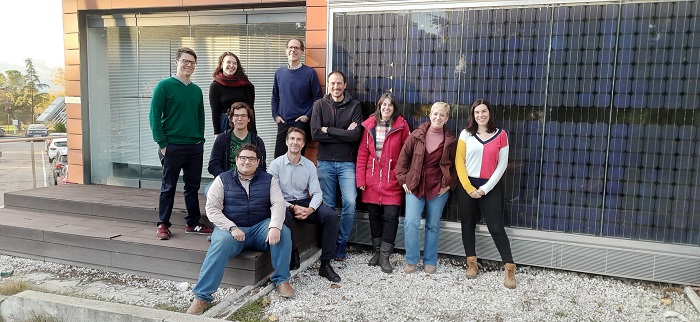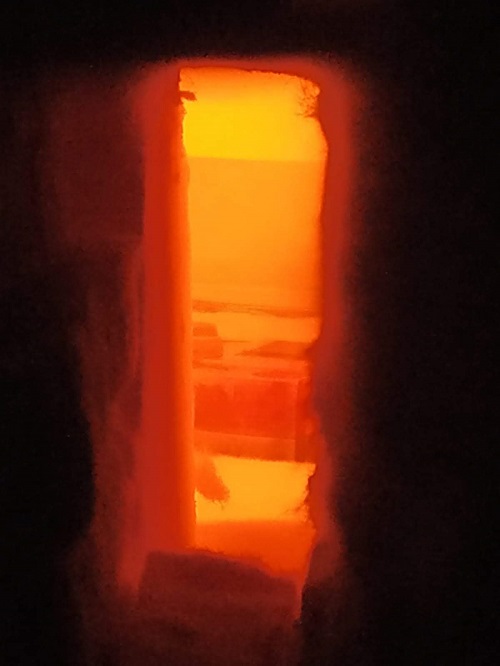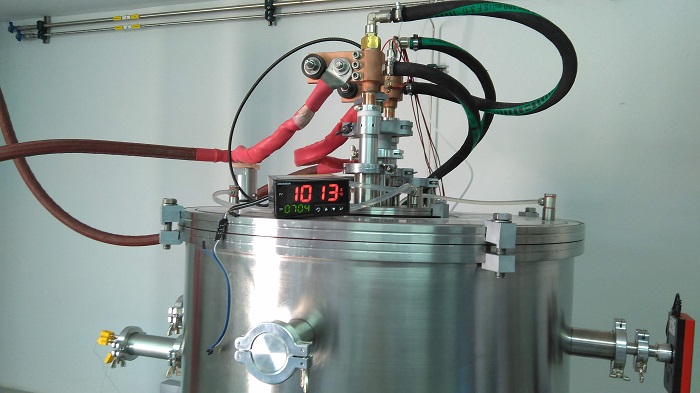One of the main current problems in the field of renewables is how to store the energy they produce. Despite of Spain being a major generator of solar and wind energy, we are only able to utilize that energy as it is produced, because there are no effective energy storage systems available to store the energy and use it as needed.
Fortunately, research groups like Alejandro Datas’, researcher at the ‘Instituto de Energía Solar’ of the UPM and scientific coordinator of the Amadeus and ThermoBat projects, research new storage systems for renewable energy. After graduating in Electrical Engineering in 2004, Alejandro obtained his PhD in 2011 at the UPM.
His research focused on thermal energy storage at very high temperatures and conversion into thermophotovoltaic energy.
Datas began his research in conventional photovoltaic technology development when he ran into the storage issue.
Project Amadeus’ origin was in Datas’ PhD dissertation, focused on thermophotovoltaic energy. “Same as the sunlight, anything radiating heat also radiates light, so I focused on converting stored heat into electricity”, Alejandro said.
So Datas’ journey started with project Amadeus, and had later continuity with two new projects: TermoBat and SunSon.
Direct photovoltaic energy storage systems in thermophotovoltaic plants, or integrating electrical storage and co-generation in homes and districts are just some of the potential applications of the devices resulting from project Amadeus, which has funding from Future Emnerging Technologies (FET), of the European Commission’s 2020 Horizon program.

“Our technology is based in a hypothesis: there is surplus from renewable energies, but it is going to naturally occur in moments with low demand. The key is to find a storage system that is cheap”, explains Datas.
“For certain applications, cost-efficiency is more important than efficiency”, explains the researcher. “We focus on heat, which is one of the most cost-efficient ways of storing energy. More specifically, we will store heat in silicon-based alloys, able to store large amounts of energy”, he explained.
Silicon is one of the most readily available materials in the Earth crust, it’s cheap, and high in energy density. Quartz is rich in silicon, and the material’s melting point is over 1,400 degrees Celsius, so it is incandescent when stored and then turns that energy into electricity. It can absorb surplus energy and then return it, using the energy that was stored first.

Datas’ group is currently developing a prototype for a thermophotovoltaic battery. Project Amadeus drew the first steps using more basic concepts, and thanks to the success in this first stage, they received financing for project TermoBat, to develop a first prototype with real-world applications. Termophoton was the company in charge of bringing the lab technology into the market.
“We’ve also obtained new European funding for a project starting in December aimed at developing a solar energy storage system. To that end, we will use concentrated solar energy to melt silicon”, Alejandro said.
This new storage system could potentially replace lithium batteries, which have a major downside in environmental impact and with their production being mostly concentrated in two or three countries. Price fluctuations are also heavily dependent on producer countries. Also, the storage capacity of lithium batteries is very short.

“Our energy storage systems are long-duration and cheap. We aim for under €20/kWh prices, and lithium batteries now stand at €200 to €300/kWh. Our batteries have a 10-100 hour storage capacity, while lithium batteries’ is barely over four hours”, says Alejandro.
"Our batteries need to be big enough to be profitable, at least over 1 MWh for large buildings. Our system is hybrid, so it provides both electricity and heat. What it doesn’t give off in electricity, it does in the form of heat, with a 40% efficiency. The other application consists of network management, a photovoltaic system can integrate it into a plant for better management on when to sell energy to other sub-stations at a network-wide scale."
“Project SunSon will test out our technology at the Plataforma Solar de Almería (PSA). This Ciemat-owned photovoltaic facility is a major industry lab, probably the largest solar concentration lab in Europe”, the researcher says.
